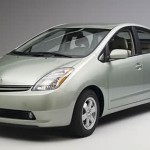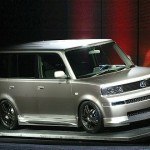Battery Production Change
Japanese buyers of the Toyota Prius hybrid are currently facing an extended waiting period of around eight months due to high demand for the vehicle. However, this situation could improve as Panasonic Corporation moves forward with its acquisition of Sanyo Electric, potentially providing Toyota with a more stable supply chain.
With increasing consumer interest in electric and hybrid vehicles, manufacturers are finding themselves in a tight spot when it comes to securing the necessary batteries. Toyota, which plans to introduce hybrid versions of all its models post-2020, may benefit from Panasonic's expanded capabilities, especially since Sanyo will act as a reliable backup supplier. This strategic move could help alleviate some of the production bottlenecks Toyota has been experiencing.
Government incentives, such as the CARS program, have further fueled the demand for fuel-efficient vehicles like the Prius. Toyota reported selling 77,000 new Prius units between May and August, surpassing their initial monthly target of 10,000. In the U.S., Prius sales saw a significant boost of over 20% in the four months leading up to September, reaching approximately 62,000 units. While Toyota had hoped for faster production growth through battery upgrades, the anticipated rise in supply from Panasonic could finally meet the growing market demands.
Looking ahead, the collaboration between Toyota and Panasonic is expected to stabilize the supply chain and reduce wait times for eager customers. This partnership not only strengthens Toyota's position in the hybrid vehicle market but also highlights the importance of technological innovation and strategic partnerships in meeting global environmental goals.
Related Posts
Polyethylene glycol and polyethylene glycol fatty acid esters are widely used in the cosmetic and pharmaceutical industries. Because polyethylene glycol has many excellent properties: water-soluble, non-volatile, physiologically inert, mild, lubricating and moisturizing the skin, soft, and pleasant after use. Different relative molecular weight fractions of polyethylene glycol can be selected to change the viscosity, hygroscopicity and organizational structure of the product. Low molecular weight polyethylene glycol (Mr<2000) is suitable for use as a wetting agent and consistency regulator for creams, lotions, toothpaste and shaving cream, etc. It is also suitable for unwashed hair care products. Gives hair a silky shine. Polyethylene glycol with high molecular weight (Mr>2000) is suitable for lipsticks, deodorant sticks, soaps, shaving soaps, foundations and beauty cosmetics. In cleaning agents, polyethylene glycols are also used as suspending and thickening agents. In the pharmaceutical industry, it is used as a base for ointments, creams, ointments, lotions and suppositories.
PEG 400, PEG 800 ,PEG 1000
Henan Chuange Industry CO.,LTD , https://www.chuangegroup.com

 2010 Prius News
2010 Prius News
 Toyota And Honda Face-Off
Toyota And Honda Face-Off
 Toyota Reaches 1,000,000 Hybrid Car Sales
Toyota Reaches 1,000,000 Hybrid Car Sales
 Want A 2010 Toyota Prius For Less Than Ever?
Want A 2010 Toyota Prius For Less Than Ever?
 New Scion Products
New Scion Products
 Car Recall
Car Recall